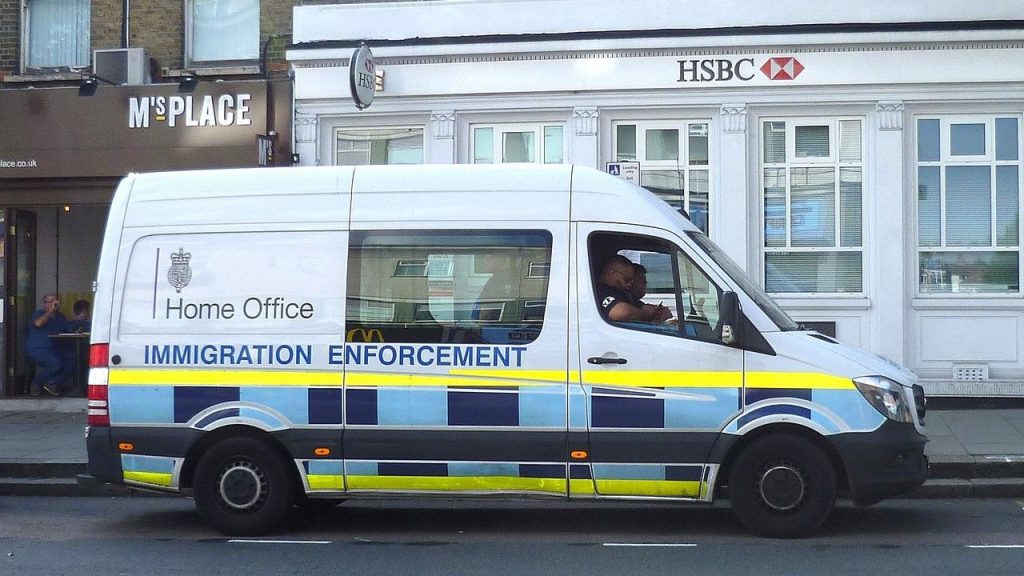The UK Labour government has launched a large national operation to arrest and deport asylum seekers and migrant workers accused of being in the country illegally. According to the Home Office, between July 20 and 27, more than 1,700 people were stopped and questioned during what officials have described as a “nationwide intensification week.” The operation focused on the gig economy, especially food delivery workers.
Around 280 people were arrested in areas such as London, Birmingham and Dumfries. Of those, 89 are being held in detention centres and will be deported soon, while another 53 are having their asylum support reviewed. Under UK law, asylum seekers are not allowed to work while their asylum application is being considered unless they have waited for over a year and received special permission.
The Home Office announced that immigration enforcement teams will get an extra £5 million to continue and expand the crackdown. This money is part of a £100 million investment in border security that aims to increase enforcement visits and gather more intelligence. Delivery companies such as Deliveroo, Uber Eats and Just Eat have also promised to increase verification checks to make sure only authorised workers are making deliveries.
The government is also sharing information about hotels housing asylum seekers with delivery companies to stop people working in those areas without permission. Critics say this move is aimed at encouraging far-right groups who have staged protests outside hotels housing asylum seekers over the summer.
Prime Minister Keir Starmer has publicly defended the new policies. He said that anyone who enters the country illegally will be detained and sent back, and argued that foreign criminals have abused the UK’s immigration system for too long. On August 7, the government also started deporting migrants who arrived by small boat under a new agreement with France, where each deportation is matched by allowing one person with a valid asylum claim to enter the UK under a legal route.
In addition, the Home Office released videos of migrants being taken into detention and boarded onto planes, saying that more appeals will be handled from abroad so that deportations can take place sooner. Earlier this month, the “deport now, appeal later” scheme was expanded to 23 countries and a new law means foreign prisoners may now be deported after serving only 30% of their sentence.
With more than 50,000 migrants having crossed the Channel since Starmer became prime minister, pressure is growing. Right-wing politicians and media outlets continue to demand even tougher actions and claim that the current efforts are not enough. Opponents warn that the anti-immigration rhetoric is fuelling hate and pushing the government to adopt even more aggressive measures.
Why is the government increasing deportations now?
Ministers say it is necessary to protect borders and restore confidence in the immigration system. However, many rights groups believe the policies are being driven by political pressure and are likely to put vulnerable people at even greater risk.

